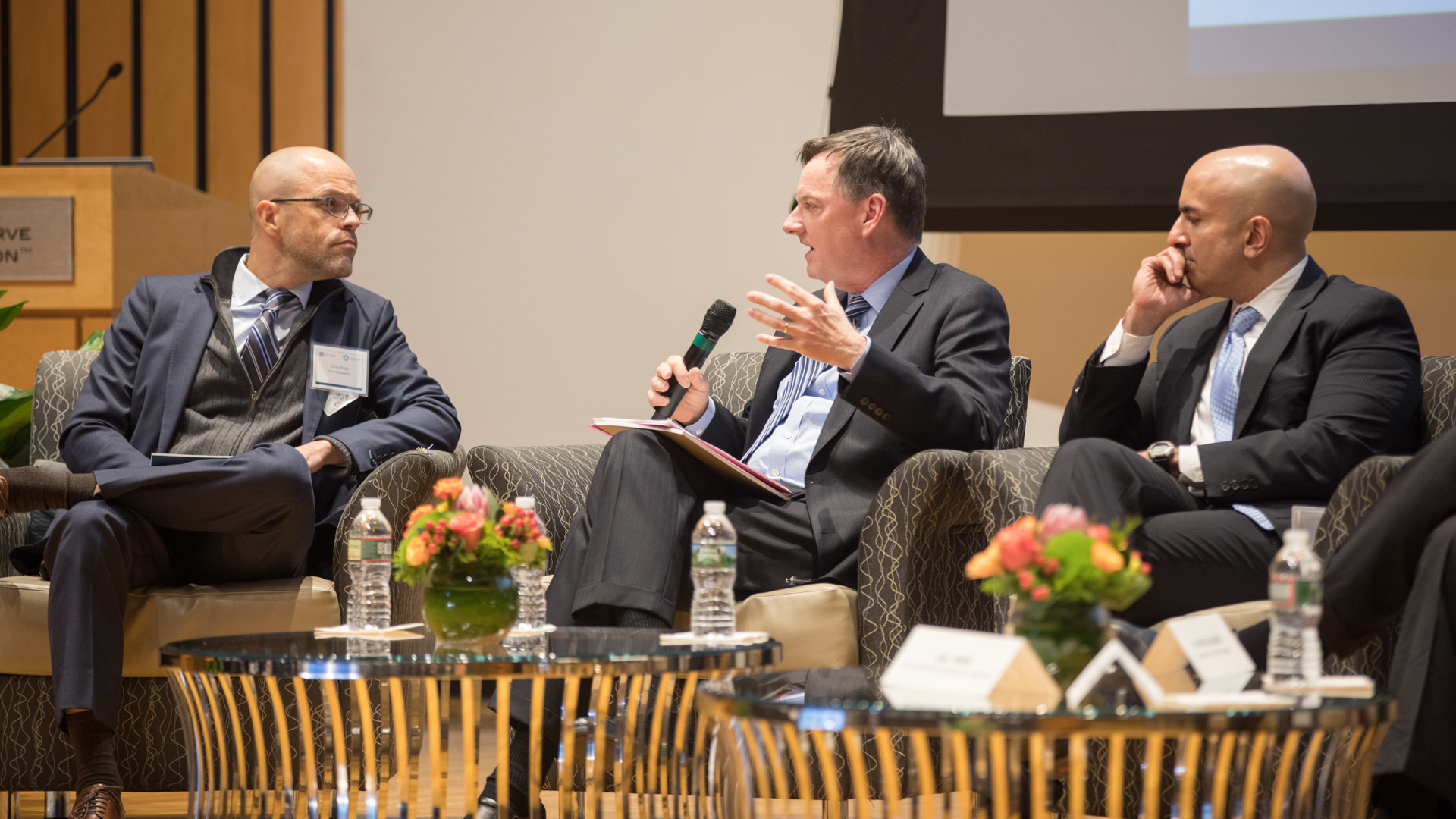Fed presidents, philanthropic leaders explore ways help struggling Americans 
Forum for inclusive economic development clears path for new partnerships 
How can new strategies and partnerships increase economic opportunity and mobility, particularly in struggling areas of the U.S.? That was the focus of a forum hosted Thursday by the Federal Reserve Bank of Boston and the Living Cities philanthropic collaborative.
Six Federal Reserve Bank presidents joined leaders from major local and national philanthropic organizations at the forum and shared their perspectives on barriers to inclusive economic progress.
The panelists discussed emerging responses and innovative investments that can help people overcome common barriers to improving their financial lives. They also highlighted opportunities for the Federal Reserve Banks and philanthropies to collaborate and innovate – with each other and partners including the private sector, state and local governments, and community development organizations. A webcast of the forum is available below.
“Partnering with the Fed to explore these challenging issues was an exceptionally rewarding experience,” said Ben Hecht, president and chief executive officer of Living Cities. “Opportunities like today’s forum give us a rare chance to dig deep into the economic challenges that residents of smaller cities and communities face today.”
6 images

The Federal Reserve System was represented by the six Fed presidents, including Eric Rosengren of Boston, Loretta Mester of Cleveland, Charlie Evans of Chicago, Patrick Harker of Philadelphia, Neel Kashkari of Minneapolis, and Robert Kaplan of Dallas.
Rosengren said he hoped the forum gave organizations that aren’t working with philanthropies and foundations the opportunity to make those connections.
“Our goal in convening this group really was to surface possibilities for collaboration between sectors, in the hope of advancing the lives of low- and moderate-income people across the country,” he said.
Rosengren added, “We’re seeing promise and impact in cities here in New England thanks to our partnerships with philanthropy, state government, and the private sector, so I was eager to share what we’ve learned to my colleagues in the Federal Reserve System.”
Philanthropic organizations that participated in the forum included The Center for Economic Inclusion, The Bill & Melinda Gates Foundation, The Prudential Foundation, the W.K. Kellogg Foundation, The Hartford Foundation for Public Giving, Purpose Built Communities, The Kresge Foundation, Partners HealthCare, and The Opportunity Hub.
More than 300 representatives from a range of public, private, and nonprofit entities attended the event, along with representatives from the Federal Reserve Board of Governors.
For more on the Boston Fed’s community development efforts, click here.

 About the Authors
About the Authors
Matthew Campion






